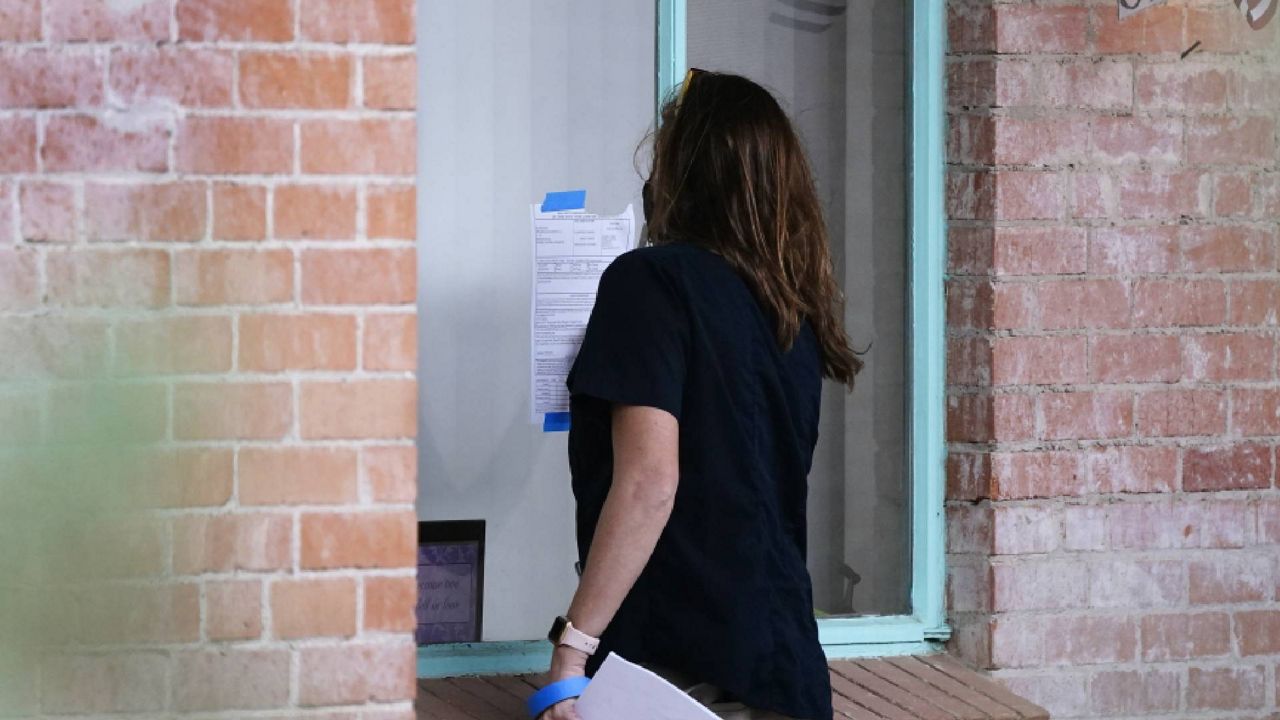In the last five months, 99 law schools in 35 states and Puerto Rico have joined in a national effort to prevent evictions, White House officials announced Friday, after a pandemic eviction ban ended and a relief program to provide rental aid ramped up.
The White House on Friday gathered the deans and students from the dozens of law schools around the country who have worked on the effort after Attorney General Merrick Garland issued a call to action at the end of August.
The schools have set up legal aid clinics, provided pro bono support to tenants and helped boost access to the Emergency Rental Assistance program, which passed through Congress as part of two 2021 COVID relief bills but was slow to roll out on the ground level.
Eviction filings for 2021 remained well below the typical year, the White House said, and below 60% of the historical average, though the attorney general on Friday acknowledged the work was not over.
“Law students and lawyers across the country stepped up to take on cases. You mobilized pop-up clinics and medical-legal partnerships to help families facing eviction and to help them keep their homes,” Garland told law school deans.
“There is so much more to do,” he added. “We know that without equal access to justice, tenants are evicted, families are fractured, innocent people go to jail, jobs are lost, veterans are left helpless, immigrants are left homeless.”
Second Gentleman and fellow lawyer Doug Emhoff also joined the virtual gathering on Friday, noting that he was "personally grateful" for the students effort to "expand access to legal representation."
Meanwhile, more than three million rental assistance payments have been made, according to the Treasury, including 655,000 in November alone.
The Biden administration has credited the rental aid program as ultimately one of the more successful facets of the American Rescue Plan, after a pivot to boost funding access late last August when a Centers for Disease Control and Prevention ban on evictions was blocked by the Supreme Court.
ARP Coordinator Gene Sperling on Friday called it “one of the most challenging aspects” of the relief bill because it required coordination across every state and more than 300 jurisdictions.
“I don't think there was another plan that was, at the same time, as frustrating and painful at times and ultimately as rewarding and inspiring,” Sperling said.
In late August 2021, $7.5 billion of $25 billion granted in the first round of rental funding had been spent.
As of late November, the Department of Treasury estimated that between $25 to $30 billion had been allocated or spent, out of a total $46.55 billion from both rounds of funding.
Law schools have also helped courts implement eviction diversion programs, after the Department of Justice called on them to do so in June.
Courts can delay eviction cases, for example, or require landlords to apply for rental assistance before filing a complaint, wrote Associate Attorney General Vanita Gupta in her summer letter.
“Eviction diversion programs encourage landlords and tenants to resolve disputes without formal litigation,” Gupta said Friday. “Studies have consistently shown that these programs can significantly increase the likelihood families can remain in their homes.”
She cited a report from the Legal Aid Society of Cleveland which showed 93% of tenants who were trying to avoid an eviction or involuntary move were successful when they had legal aid.
“They need all of you law students willing to step up and make a difference to make these programs work,” Gupta added Friday. “They need you to help connect potential litigants with rental assistance programs to mediate disputes and, if necessary, to represent the unrepresented in court.”



